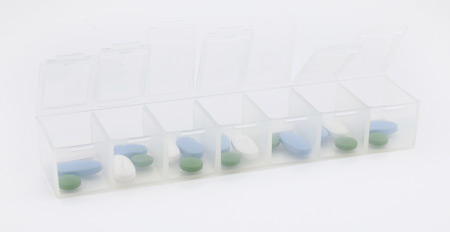
While researchers are still working to determine the cause(s) of depression, the National Institute on Aging indicates that several risk factors may contribute to older adult depression. Family and personal history can play a role, as does a patient’s unique brain chemistry. Additionally, late-in-life stressors may trigger depression – like losing a loved one, retirement, changes in social life and many other sources.
“Risk factors leading to the development of late life depression likely comprise complex interactions among genetic vulnerabilities, cognitive diathesis, age-associated neurobiological changes, and stressful events,” according to an article published in the Annual Review of Clinical Psychology. “Insomnia is an often overlooked risk factor for late life depression.”
Geriatric depression treatment may be different than treating younger patients. Age, comorbidity and polypharmacy are three factors that may be taken into consideration.
Age and Its Role in Geriatric Depression Treatment
Aging may impact how patients process certain medications. The Food & Drug Administration (FDA) states:
“As you get older, body changes can affect the way medicines are absorbed and used. For example, changes in the digestive system can affect how fast medicines enter the bloodstream. Changes in body weight can influence the amount of medicine you need to take and how long it stays in your body. The circulatory system may slow down, which can affect how fast drugs get to the liver and kidneys. The liver and kidneys also may work more slowly, affecting the way a drug breaks down and is removed from the body.”
Age can complicate genetic factors. Geriatric patients may have impaired production of CYP450 enzymes, which can affect drug metabolism rate, according to an article published in Current Medicinal Chemistry. This may exacerbate the effect of pharmacogenomic variation.
The Poor Metabolizer (PM) phenotype may be more extreme in elderly patients compared to younger patients. According to an article in the Journal of European Clinical Pharmacology, one study showed that serum levels of venlafaxine among elderly CYP2D6 PMs were 8-fold greater than younger CYP2D6 PMs.
How Comorbidity Can Impact Geriatric Depression Treatment

“…aging seldom comes alone, often being accompanied by chronic diseases, comorbidity, disability, frailty, and social isolation,” according to an article in the Journal of Comorbidity. “Multimorbidity in the elderly has been estimated to range from 55% to 98%, and is highest in the very old, in women, and individuals belonging to low socioeconomic classes.”
Renal or hepatic impairment may impact the level of medication in the body. In fact, “renal and hepatic diseases have a significant impact on the plasma concentration profiles and the dose requirements for almost all drugs,” according to International Clinical Psychopharmacology.
Polypharmacy & Managing Multiple Medications
According to the Centers for Disease Control (CDC), 89% of older people used at least one prescription and almost 68% used three or more prescriptions within a 30 day period. Those statistics might not include over the counter (OTC) supplements or vitamins that they may be taking as well.

Polypharmacy can be problematic because patients may see various specialists for differing ailments. Since no single provider is typically responsible for managing the patient’s complete medication profile, drug/drug interactions could occur.
Polypharmacy can lead to adverse drug reactions (ADR); in fact, this population has more ADRs than in the general population.
“The reported proportion of hospital admissions due to ADRs has ranged from 6% to 12% of all admissions in older patients,” according to an article in Clinical Interventions in Aging. “ADRs represent a major burden on society, resulting in significant morbidity, mortality, and healthcare costs.”
Considerations for Geriatric Depression Treatment
The first step in treating patients is determining whether your patients are presenting with major depressive disorder symptoms. While clinicians may use the standard diagnostic depression screening tools, there is a depression rating scale developed specifically for geriatric depression called the Geriatric Depression Scale Short Form (GDS-SF).
This 15-item screening tool is used extensively “in community, acute and long-term care settings” and is easy to administer and score. It typically takes 5-7 minutes to administer and asks questions like if the patient is satisfied with their life, if they feel their life is empty or if they often get bored.
Once diagnosed, physicians can reference two published guidelines to help them make critical medication decisions (read more about guidelines for geriatric depression treatment on our blog). Since 2011, The Beers Criteria® has been regularly updated by the American Geriatrics Society to catalogue medications that may not be the most appropriate treatment options for older adults. By using evidence-based methodology, the Beers Criteria accounts for the pharmacologic properties of drugs in addition to the physiologic changes of aging.
Like the Beers Criteria, START/STOPP criteria lists the Potentially Inappropriate Medications (PIMS). START is an acronym for the Screening Tool to Alert doctors to the Right Treatment. STOPP stands for the Screening Tool of Older Persons’ Prescriptions. Unlike the Beers Criteria, START/STOPP criteria stratifies medications by potentially inappropriate use and indication, documents the clinical concern, and lists recommended therapeutic alternatives.
For more information about geriatric depression treatment, please visit our webinar series, which includes an introduction to pharmacogenomics in the elderly population, geriatric guidelines for treatment and a geriatric case study.
This blog is for informational purposes only and does not constitute medical advice. Do not make any changes to your current medications or dosing without consulting your healthcare provider.
The GeneSight test must be ordered by and used only in consultation with a healthcare provider who can prescribe medications. As with all genetic tests, the GeneSight test results have limitations and do not constitute medical advice. The test results are designed to be just one part of a larger, complete patient assessment, which would include proper diagnosis and consideration of your medical history, other medications you may be taking, your family history, and other factors.
If you are a healthcare provider and interested in learning more about the GeneSight test, please call us at 855.891.9415. If you are a patient, please talk with your doctor to see if the GeneSight test may be helpful.
Our articles are for informational purposes only and are reviewed by our Medical Information team, which includes PharmDs, MDs, and PhDs. Do not make any changes to your current medications or dosing without consulting your healthcare provider.
The GeneSight test must be ordered by and used only in consultation with a healthcare provider who can prescribe medications. As with all genetic tests, the GeneSight test results have limitations and do not constitute medical advice. The test results are designed to be just one part of a larger, complete patient assessment, which would include proper diagnosis and consideration of your medical history, other medications you may be taking, your family history, and other factors.
If you are a healthcare provider and interested in learning more about the GeneSight test, please contact us at 855.891.9415. If you are a patient, please talk with your doctor to see if the GeneSight test may be helpful.




